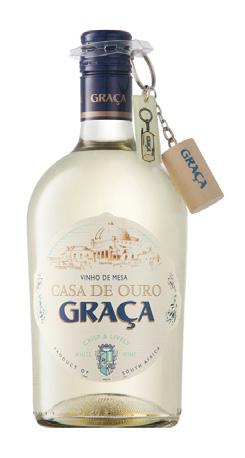
5 minute read
RECYCLING
from Spotong Issue 2
by 3S Media
SAVE THE ENVIRONMENT
CAN RECYCLING
Advertisement
AND MAKE MONEY Collect-a-Can is a recovery as opposed to a profit driven company and has proven that it is self-sustainable by managing its operations and cost structures at optimum levels, assuring the respective southern African governments, environmentalists and the public of Collect-a-Can’s long-term stability. Over the past 19 years, Collect-a-Can has been at the forefront of minimizing the negative impact of used beverage cans on the environment. “We have subsequently been involved in the recovery of all scrap tinplate generated in the tinplate and can-making processes, including sludge, cut-offs (skeletons), misprints, sub-standard fills, and most importantly the recovery of used metal cans,” says Operations Manager Gregory Masoka. The core business of Collect-a-Can is to facilitate the recovery of used beverage cans, although the company also recover aerosol, aluminium, food, oil and paint cans, thereby addressing the cradle-tocradle needs of the metal can industry.
What happens to cans once they reach Collect-a-Can
Collect-a-Can does not recycle steel itself. All cans recovered are either compressed into bales and sold on the open market to steel mills to produce new prime steel or turned into briquettes which are sold to the mining operations. . Collect-a-Can has a depot in Aeroton near Soweto where they buy cans directly from the public and other established can collectors.
Collect-a-Can Tel: 011 494-3623
GLASS RECYCLING PLASTIC RECYCLING
Glass collectors are predominantly partially employed or unemployed South Africans, who are able to supplement their income by collecting waste glass in the townships and outlying areas, and selling it for cash. The Glass Recycling Company is South Africa’s official organisation for promoting glass recycling and has assisted over 700 entrepreneurs with income generating opportunities. The Glass Recycling Company offers primary glass collection infrastructure, business training and drop-off points for collectors where returnable bottles are collected and sold back. All glass bottles and jars (green, amber, clear) whole and broken bottles and jars are acceptable. Buy back centres offer opportunities for energetic entrepreneurs to create sustainable businesses and are also a critical link in the collector market, making it easier for them to deposit their collected waste glass and thereby earn cash.
Entrepreneurs who have access to a fourton or skip truck can build sustainable businesses by collecting glass in suburbs where residents are actively separating at source and recycling waste glass. The more entrepreneurs there are who embrace this business opportunity, the more people will recycle.
Preparation Tips:
• In South Africa, it’s not necessary to wash glass before placing it into
“Glass Banks”. • It’s preferable to remove corks and lids. • It’s not necessary to separate different coloured glass into separate banks. Plastic bottle recycling has led to job creation in the waste management, product development, manufacturing and marketing sectors. It has been estimated that the industry creates 14 000 income opportunities for collectors. Direct jobs in the Polyethylene Terephthalate (PET) bottle recycling industry have a capital investment amount of R130 million.
Recycling demand for plastic bottles has outstripped supply for many years and South African recyclers now have the capacity for an increased number of bottles for reprocessing. Plastics are the material of choice for many manufacturers and will form an increasing proportion of household waste in the future. Research conducted by the United Kingdom based recycling organization Recoup, has shown that if plastics were no longer used in packaging the weight of packaging materials would rise by 300%, the volume of rubbish would expand by 150% and the energy consumed by the packaging industry would increase by 100%. Approximately 12% of household waste is packaging waste. Estimates are that approximately 3% of this, by weight, consists of plastic bottles. They are easy for the public to identify and remove from the residual waste stream.
FOR MORE DETAILED INFORMATION CONTACT THE FOLLOWING ORGANISATIONS:
Buyisa-e-Bag Tel: 011 452 0414 PETCO Tel: 0860 147 738 Extrupet Tel: 011 865 8360/1 South African Plastics Recycling Organisation Tel: 083 654 8967 Polystyrene Packaging Council Tel: 012 259 0554
PAPER RECYCLING
Material recycling has the potential to create employment and other economic empowerment opportunities through Small, Medium and Micro Enterprises. Recycling also saves the environment in terms of reducing the amount of recoverable packaging materials ending up in landfills. According to the Paper Recycling Association of South Africa, recovered paper is an international commodity, with over 36 million tons traded annually. In paper and paperboard production, recovered paper is the most important and fastest growing raw material. The association confirms that during the past 15 years, the recovered paper collection and utilisation in paper manufacturing has doubled from 84 million to 167 million tons. The first step to start your own business in this industry is by collecting old newspapers and selling them to a recycling plant in your area.
Tips for Paper Recycling:
• Get a separate reusable container for your paper waste. • Separate your paper waste from your other waste by placing it in the container. • Keep your waste paper clean and dry – quality is important for a good end product. Buyers will not accept wet paper. • Find out from your local recycler what paper grades should be kept separate from the rest.
SOME IMPORTANT CONTACT DETAILS IN THE RECYCLING INDUSTRY:
Paper Recycling Association of South Africa Tel: 011 803 5063 Mondi Recycling Tel: 0800 022 112 Nampak Recycling Tel: 0800 018 818 Sappi Tel: 082 876 7468 Lefatse Larona Recycle Tel: 083 413 8162
COLLECT A CAN AD


















